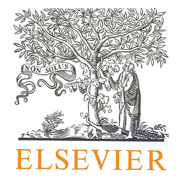دانلود ترجمه مقاله درک دینامیک های تصمیم گیری استراتژیک در خلق سرمایه
| عنوان فارسی |
درک دینامیک های تصمیم گیری استراتژیک در خلق سرمایه: یک مطالعه فرآیندی از اثربخشی و علیت |
| عنوان انگلیسی |
Understanding Dynamics of Strategic Decision Making in Venture Creation: A Process Study of Effectuation and Causation |
| کلمات کلیدی : |
منطق تصمیم گیری؛ روش های کمی و کیفی؛ کارآفرینی؛ تصمیم گیری استراتژیک |
| درسهای مرتبط | مدیریت استراتژیک |
| تعداد صفحات مقاله انگلیسی : 29 | نشریه : Wiley |
| سال انتشار : 2015 | تعداد رفرنس مقاله : 74 |
| فرمت مقاله انگلیسی : PDF | نوع مقاله : ISI |
|
پاورپوینت :
ندارد سفارش پاورپوینت این مقاله |
وضعیت ترجمه مقاله : انجام نشده است. |
1. مقدمه 2. پیشینه نظری 3. روش تحقیق 4. آنالیز و نتایج 5. یک مدل دینامیک از تصمیم گیری استراتژیک در خلق سرمایه 6. بحث و بررسی 7. نتیجه گیری

بحث و بررسی: مطالعه طولی به بررسی تصمیم گیری کارآفرینی استراتژیک در طول فرایند سرمایه گذاری می پردازد. ما بر روابط بازگشتی بین تصمیم گیری استراتژیک و سرمایه گذاری تاکید داشتیم: تصمیمات استراتژیک به شکل گیری سرمایه گذاری پرداخته و پیامد چنین تصیماتی نیز به نوبه خود بر شرایط خارجی و سرمایه گذاری تاثیر می گذارند، که به نوبه خود بر کاربرد منطق تصمیم گیری اثربخش می باشند. این نیز ما را به پیشبرد درک دینامیک از تصمیم گیری استراتژیک در فرایند سرمایه گذاری قادر ساخت. ما به سه روش به نظریه پردازی درباره تصمیم گیری استراتژیک تحت عدم قطعیت پرداختیم. اولا، ما به شناسایی رابطه بین منطق تصمیم گیری علت و معلولی بعنوان مثال هایی از منطق تصمیم گیری انعطاف پذیر و برنامه ریزی پرداختیم. ما دریافتیم که تصمیم گیری کارآفرینی استراتژیکی از منطق ترکیبی پیروی می کند که از علت و معلول بطور همزمان استفاده می کند، درحالیکه منطق غالب درطول زمان تغییر می کند. دوما، یافته های ما- در ترکیب با مدل دینامیک تصمیم گیری کارآفرینی ما- از چشم اندازهای الوارز و بارنی (2005) در زمینه وابستگی تصمیم گیری کارآفرینی به سرمایه گذاری پیروی می کنند. بویژه، آنها درک ما از شرایط و محرک های علت و معلول را فراتر از تجربه کارآفرینی و عدم قطعیت اولیه گسترش می دهند. علاوه بر درک عدم قطعیت، به شناسایی موقعیت منابع و فشارهای سهامداران به هنگام تاثیر شرایط بر منطق علت و معلول می پردازیم. بعلاوه، ما دریافتیم که این شرایط محرک کارآفرینان به استفاده از علت و معلول از نظر تجاری نیستند. در مقابل، تحلیل ما نقش مهم و فوری تصمیمات کارآفرینی فعال درباره سرمایه گذاری در پاسخ به شرایط خارجی و سرمایه گذاری (عدم قطعیت زیست محیطی ادراکی، موقعیت منابع و فشار سهامداران) را نشان می دهد. سوما، یافته های ما نشان می دهند که چشم اندازهای منحصربفرد را می توان از تحقیقات فرایند در زمینه تصمیم گیری استراتژیک تحت عدم قطعیتی استخراج کرد (در شرایط دیگر موثر بر علت و معلول و همچنین مکانیسم های میانجیگری) که قابل دسترسی از تحقیقات مقطعی نیستند.
DISCUSSION: This longitudinal study investigated strategic entrepreneurial decision making during the venture creation process. We focused on recursive relations between strategic decision making and venture creation: strategic decisions shape a venture, and outcomes of such decisions in turn influence the external and venture conditions, which in turn affect the use of decision-making logics. This enabled us to advance understanding of dynamics of strategic decision making in the process of venture creation. We advance theorizing on strategic decision making under uncertainty in three ways. First, we clarify the relationship between causal and effectual decision-making logics as examples of planning and flexible decision-making logics, respectively. We find that strategic entrepreneurial decision making follows a hybrid logic that uses both effectuation and causation simultaneously, while the dominant logic dynamically shifts over time. Second, our findings— synthesized in our dynamic model of entrepreneurial decision making—support and elaborate on the insights of Alvarez and Barney (2005) regarding the context dependence of entrepreneurial decision making for venture creation. In particular, they broaden our understanding of conditions and drivers of effectuation and causation beyond initial uncertainty and entrepreneurial experience. In addition to perceptions of uncertainty, we also identify resource position and stakeholder pressures as conditions influencing effectual and causal logics. Furthermore, we find that these conditions do not mechanistically trigger entrepreneurs to use more or less effectuation and causation. By contrast, our analyses uncover the important, intermediary role of active entrepreneurial decisions on venture scope in response to external and venture conditions (perceived environmental uncertainty, resource position, and stakeholder pressure). Third, our findings more generally demonstrate that unique insights can be derived from process research on strategic decision making under uncertainty (on additional conditions influencing effectuation and causation, as well as mediating mechanisms) that are not available from crosssectional research.



دیدگاهها
هیچ دیدگاهی برای این محصول نوشته نشده است.